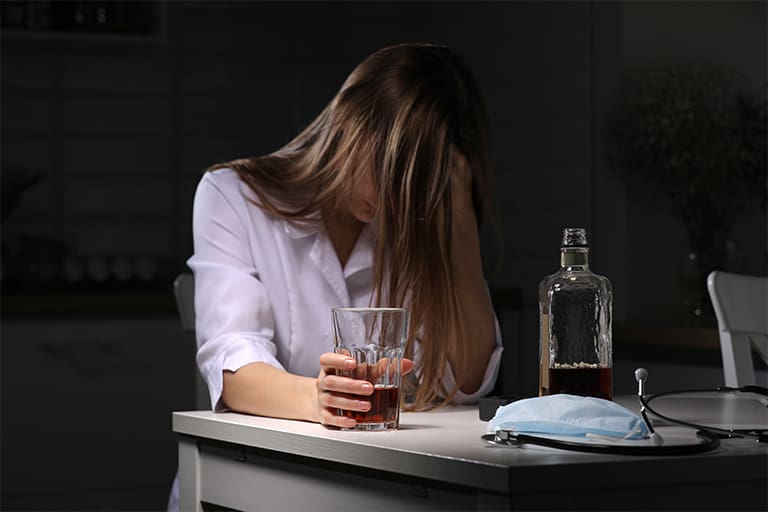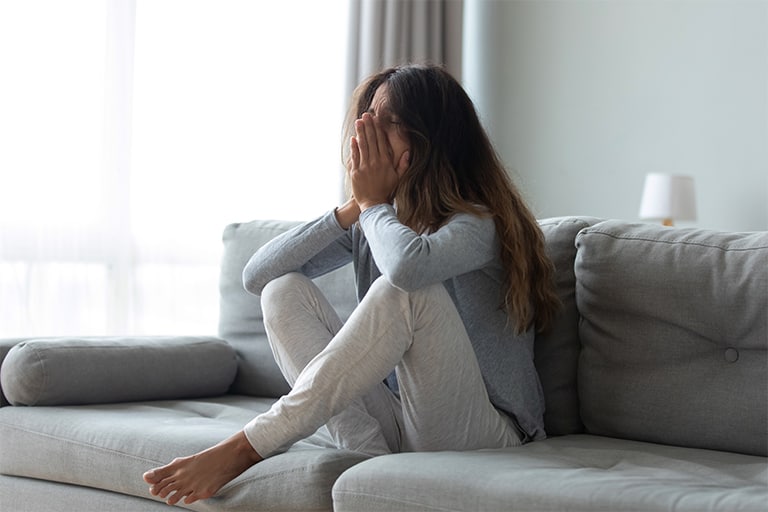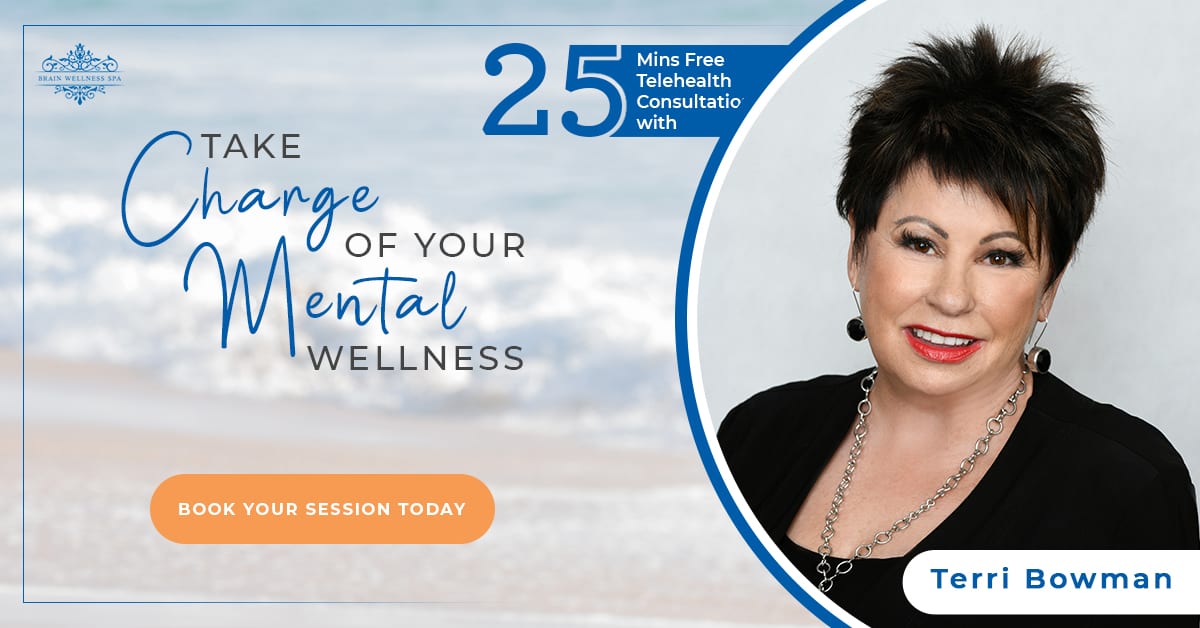Depression in young adults manifests differently than it does in adults but the effect is no different to adult depression. This could be because of their age and the different challenges they face such as hormone changes and peer pressure. Depression in young people is a serious problem. Tragically the average rate of suicide in young people in Western Australia is the second highest in Australia. There were 3.3 deaths per 100,000 people in the 5 to 17 age group between 2016 and 2019. And worse still, young people are less likely to seek help when depressed and have suicidal thoughts.
It is tough growing up particularly when transitioning from a child to an adult. One in four young people experience a mental health disorder with depression the most common problem. This can cause them to withdraw socially and their school work can suffer. And they may engage in risky behaviour such as drugs and alcohol.
Depression is not something you can expect them to snap out of. It is not as simple as that. When you see signs of depression there is no point telling a young adult to cheer up. It will not help as it is a real medical condition and they need help.
Depression symptoms in teens
It can be difficult to tell whether your teen is just going through the normal ups and downs of teenage years or whether they are displaying signs of depression.

Depression symptoms can vary in severity. The following are examples of behavioural and emotional changes:
· Changes in behaviour. Changes in behaviour include:
· Using alcohol and drugs.
· Lack of energy and being tired all the time.
· Oversleeping or unable to sleep at all.
· Frequently complaining about body aches that result in doctor’s visits or seeing the school nurse.
· Often skipping school and grades sliding.
· Isolating themselves socially.
· Letting their personal hygiene slide.
· Lack of focus.
· Risky behaviour and acting out.
· Disruptive, moodiness and angry outbursts.
· Moving, thinking or speaking slower than usual.
· Signs of agitation or restlessness such as pacing and not being able to sit still.
· Changes in eating habits that cause either weight gain or loss.
· Harming themselves such as burning and cutting.
· Attempting suicide or planning to attempt suicide.
· Emotional symptoms. Emotional symptoms of depression include:
· Conflict with family and friends.
· Feeling sad and crying for no particular reason.
· Talking about feeling worthless and expressing guilt.
· A constant need for reassurance and a focus on previous failures.
· No longer being interested in the things they once enjoyed.
· Losing their temper and becoming frustrated over even small, inconsequential things.
· Low self-esteem.
· Trouble making decisions, concentrating and recalling things.
· Often irritable or annoyed.
· Talking about how life is hard and there is little or no hope for the future.
· Often thinks about dying, suicide and death.
Causes of depression
While it is not known what causes depression, there can be a number of things that contribute including:
· Trauma during childhood. A child that experiences trauma such as losing a parent or abuse of some sort may cause changes to a child’s brain. This can make them more vulnerable to depression.

· Genetics traits. A family history of depression can make it more likely, for example:
· Family conflict or being part of a dysfunctional family.
· A family member who suicided.
· A blood relative who has a drug or alcohol problem or is bipolar.
· Stressful events such as bullying, the death of someone close or parental divorce.
· Learned behaviour. Young adults may learn to feel helpless or worthless through life events. They may not learn to find solutions for the challenges they face in life.
· Hormonal changes. As children get older their hormones change and a hormonal imbalance can cause depression.
· Abnormal brain chemistry. The brain has natural neurotransmitters that carry signals throughout the body. And when these are abnormal, it can lead to depression.
Factors that put young people at risk
Life as a teenager can be tough. There are many factors that can increase the risk of young adults becoming depressed. These include:

· Abusing drugs and alcohol.
· Being a victim of or witnessing trauma such as family violence, and physical and sexual abuse.
· Other mental health conditions such as ADHD, anorexia and bipolar disorder.
· Obesity, bullying, problems at school, struggling academically and not fitting in with their peers.
· A learning disability.
· Physical chronic illness such as cancer.
· Personality traits such as being overly self-critical and pessimistic.
· Gender identity issues without being in a supportive environment.
How you can help with depression
It is vital you seek help if you think your teenager has depression. If left untreated, it can lead to other mental health conditions and, even worse, suicide.
To help your child, start by talking with them. Avoid being judgemental. Talk to them about their behaviours and how they are feeling. Let them know the symptoms of depression and that you notice these in them. Tell them that what you see is worrying you. Let them know there is depression help. Ask them to share their thoughts and feelings with you. Focus on listening and avoid criticising when your teenager does open up and start talking. And try not to ask too many questions as this can alienate your teenager. Let them know you love them unconditionally and are willing to give them the support they need.
Your teenager may resist talking at first. They may tell you there is nothing wrong although their behaviour tells you something different. Approach them in a gentle way but be persistent. It can be really difficult for a teen to open up about how they feel. Stress that you want to listen to their concerns.
Even if what they say seems irrational or silly, acknowledge how they feel. Avoid trying to rationalise their feelings or your teen will think you are not taking them seriously. Regardless of what you think, their emotions are serious to them. Just acknowledge the pain they feel and the sadness. This will demonstrate your understanding and support.
And if you cannot get your teen to open up, trust your gut instinct that something is wrong. It is important to get them to open up and talk with someone. Ask someone else such as a school counsellor, favourite teacher or family member to talk with your teenager. It is important they talk about how they feel so it may be necessary to visit your doctor for help.
Depression treatment
Supporting your teenager may not be enough. You may need professional help from someone who has a history of working with teenagers. But make sure you involve them in choosing a depression treatment and therapist. It is important they engage in the treatment so avoid ignoring their preferences. Involve them in the decision making. Keep in mind, no one therapist or treatment option will work for everyone. So if your teenager is uncomfortable or not connecting with one therapist, seek out one they will engage with.
Also explore the options for treating your teen’s depression with the therapist. Talking it out is great for someone with mild or moderate depression. This may help them feel better and solve their issues. But if it does not, explore other options.
Try to avoid antidepressant medication if at all possible. But it may be the only option if they are acting out dangerously or are suicidal. Medications are usually more helpful when part of an overall treatment plan. Weigh up the options carefully before making decisions.
Because antidepressants were designed for adult use, it is not fully known how they impact young developing brains. Also there is a greater risk of suicide in the first one or two months of a young person taking antidepressants. So if they are on medication it is crucial to monitor them for signs their depression is getting worse.
Alternative treatments for depression
No one technique is likely to guarantee to relieve depression but there are alternative treatments to try. Make sure you discuss any options your teen wants to try with your healthcare worker. Alternative therapies include:

- Mindfulness meditation. Mindfulness meditation helps you focus on the present to increase focus and happiness.
- Practice deep breathing. Inhaling deeply and exhaling slowly while focusing on breathing can help your teen focus. And it can help to reduce depression and anxiety.
- Herbal remedies. Herbal remedies such as St John’s wort are often used to treat depression. Just check to make sure it will not interact negatively with other medications.
- Regular exercise. Regular exercise is a safe for your teen. It will clear their head and help chase depression away.
- Massage. Massage is a fantastic way to relax. It reduces the tension and stress associated with depression.
Blissiree Pty Ltd
Your teenager’s mental health is important and it can be difficult to tell the difference between normal moodiness and depression. But if you do not prioritise their mental health, their symptoms can escalate. Until you do something about it, this will continue to negatively impact your child’s overall health, life and happiness. It will also impact their friends and your family.
The Blissiree Pty Ltd is pioneering a new technique that only requires you to relax. And has a program especially for teenagers. Highly trained facilitators may help your teen to overcome the associated triggers and symptoms of depression that can control their life. And they may notice an improvement after the first session.
With some simple changes to your child’s life and with practice, they can learn to cope better. They can learn what their triggers are and work on challenging their negative nagging inner voice. This will help them see through the illusion depression and negative thoughts create.
But if their mental health has become a problem, it is time to turn it around. Time to do something positive about it. Seek help. Take back control. You and your teenager do not have to go through it alone. The sooner you get help, the sooner your child can start taking good care of their mental health. And get back to enjoying life.
Reach out
If your teenager is struggling with depression, reach out to our professionals. When they are not coping, contact us. We can talk to you and your child about getting their life back on track. But if your child reaches a crisis point, call us immediately. We are here to support both of you.
We can work with you over the phone, via Skype or in our Spas. Book in today for my Emotional Empowerment Program. I have an introductory offer for just $99 so your child may start taking back control of their life. We aim to help them cope with any mental health challenges. Our facilitators may alleviate the effects of these so they start to take control and enjoy life again.
Let me help alleviate the effects of mental health issues
My Emotional Empowerment Program has helped many young adults for more than a decade. My aim is to help manage their symptoms. This can give them new hope for the future. A future filled with happiness, peace, and contentment in weeks not years.

Give the Blissiree Pty Ltd a try by booking a free 25-minute telehealth consultation. Or discover a seamless way to help your teenager improve their emotional and mental health by becoming a member. It will give you and your teenager access to more than 75 audio programs that may help your child and you to live inspired.


